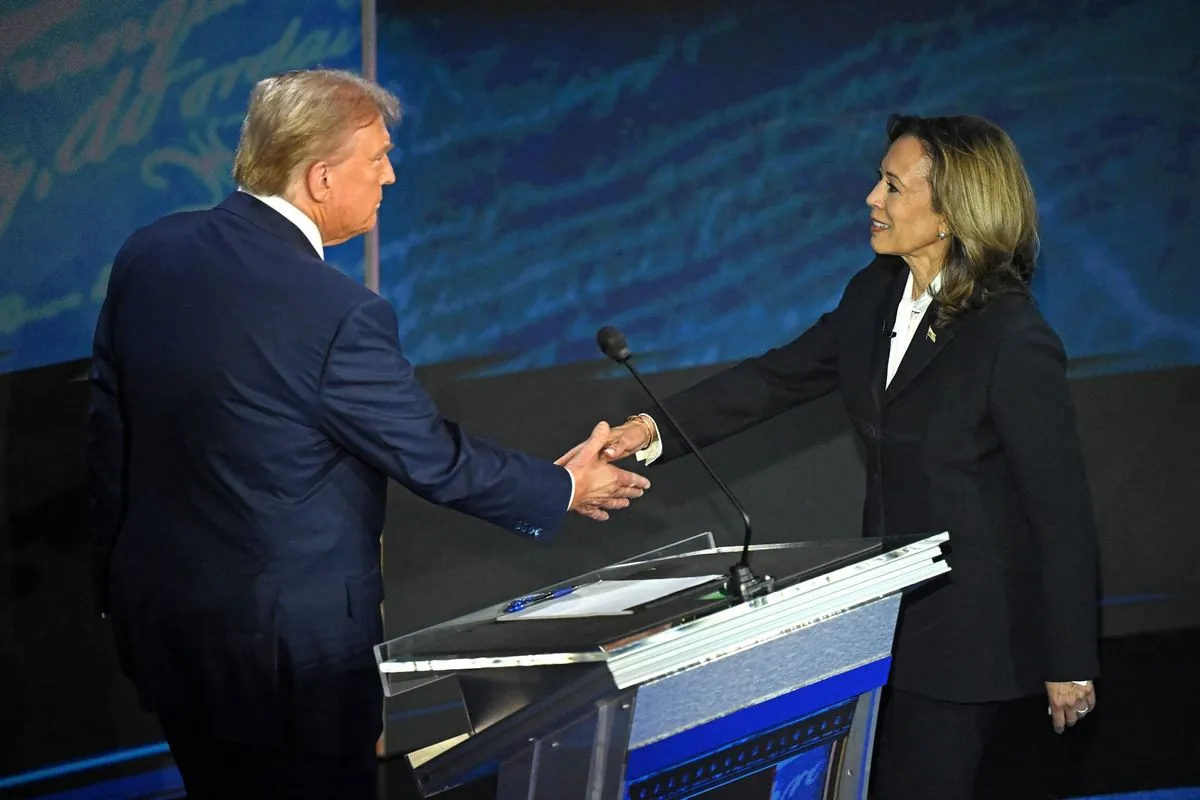In a pivotal moment of the 2024 election campaign, Vice President Kamala Harris and former President Donald Trump faced off in their first and potentially only debate on September 10. The event, occurring less than two months before the November 5 election, showcased stark differences in their approaches and visions for America's future.
Harris, the first woman, African American, and Asian American to hold the vice presidency, employed a strategy aimed at provoking Trump and highlighting his controversial statements. She urged viewers to attend Trump's rallies, suggesting they would hear bizarre claims and leave out of boredom. This tactic visibly irritated Trump, who responded by boasting about his rally attendance and making unsubstantiated claims about immigrants.
The debate touched on several key issues, including the economy. Harris outlined her recent policy proposals, including tax credits for small startups. Trump focused on tariffs and protecting American industry from foreign competition. This exchange highlighted the contrasting economic philosophies of the two candidates.
The abortion rights discussion revealed a significant schism between the candidates. Trump defended the 2022 Supreme Court ruling that ended federal protection for abortion, claiming it was widely desired. Harris countered by pointing out the restrictive bans enacted in some states and the impact on healthcare providers.
"I did a great service in doing it. It took courage to do it."
The debate also addressed the justice system, with both candidates accusing each other of attempting to weaponize the Department of Justice. Trump claimed the indictments against him were part of a conspiracy, while Harris pointed to Trump's statements about prosecuting his enemies if re-elected.
Throughout the debate, Harris emphasized her role as a former prosecutor, challenging Trump's past actions, particularly his efforts to overturn the 2020 election results. She reminded viewers that Trump had been "fired by 81 million people," referencing the record-breaking voter turnout in the 2020 election.
The event underscored the high stakes of the upcoming election, with both candidates portraying their opponent as a threat to democracy. As the first televised vice presidential debate since 1960, it provided voters with a clear contrast between the two tickets vying for the White House.
This debate occurs in the context of a unique American political landscape. The U.S. has a two-party system dominated by Democrats and Republicans, with the Electoral College, not the popular vote, determining the presidential election winner. The vice president's role, while including being President of the Senate, has no constitutional oversight of elections.
As the campaign enters its final stretch, the impact of this debate on voter perceptions remains to be seen. With the 22nd Amendment limiting presidents to two four-year terms, the outcome of this election could significantly shape the future of American politics and governance.
